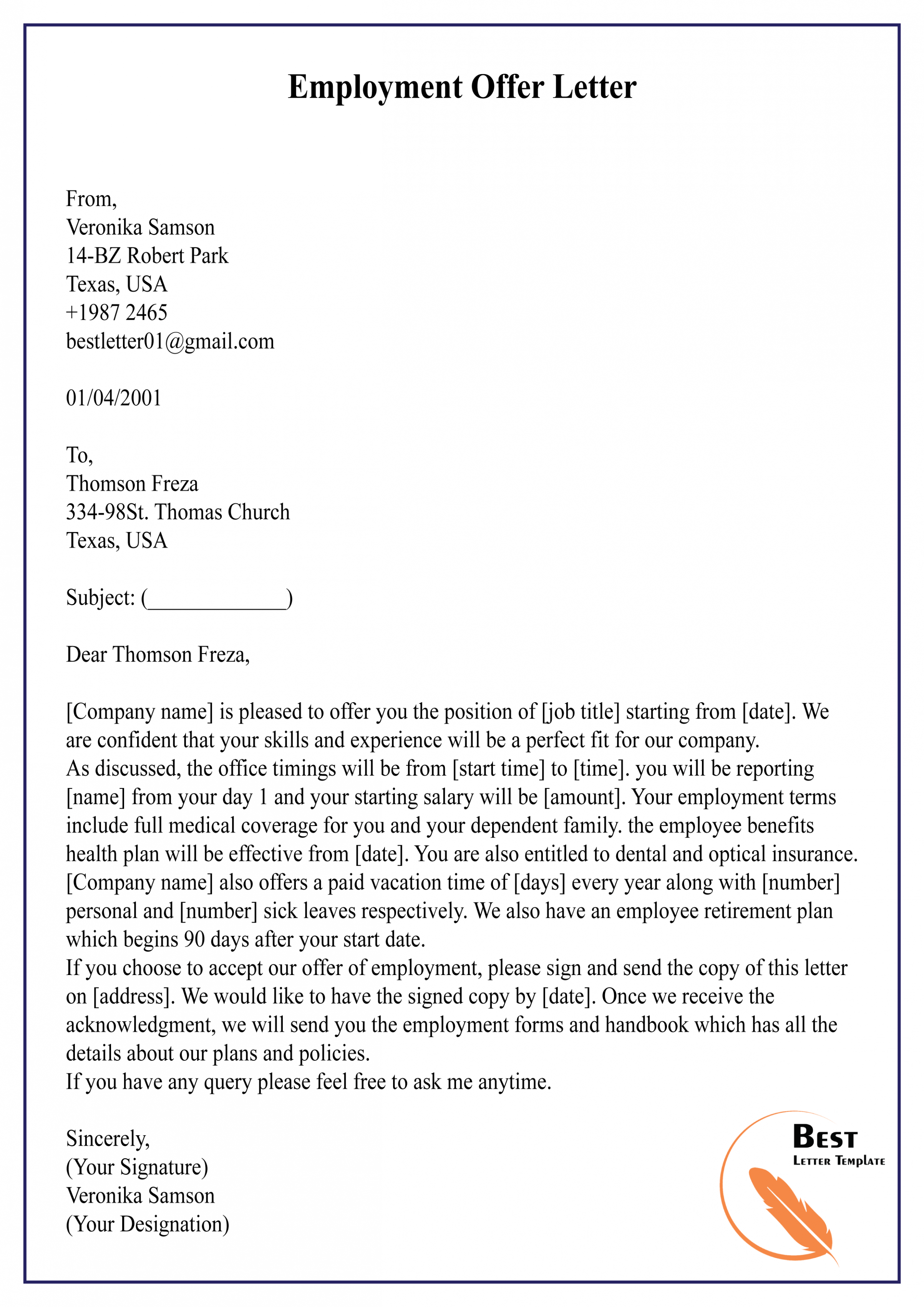Letter Of Offer Of Employment Template Taxpayers experiencing tax obligation financial obligation troubles seldom contrast the internal revenue service deal in concession with the Chapter 13 insolvency. Frequently, the Chapter 13 will provide a much more certain solution for the taxpayer to settle tax obligation debt. This post analyzes the family member benefits of both the offer in compromise as well as Phase 13.

An deal in compromise might be the most advertised tax treatment. You can not listen to radio or enjoy TV without being bombarded by advertisements to settle your tax obligation financial debt. Often the advertisements proclaim that the internal revenue service has introduced that compassion in the collection of the tax obligation financial debt exists for a restricted time. The depressing fact is that the leniency announcement by the IRS was commonly for various other problem location, such as tax obligation shelters. The IRS rejects around 85 percent of all deals in concession submitted due to uncertainty as to collectibility. Deals in concession are usually filed because the taxpayer believes the tax financial obligation can not be paid, Doubt as to Collectibility is one of the most common kind of offer in compromise. Various other types of offers in concession are outside the range of this short article.
The advantage of the offer in compromise is that the tax obligations, consisting of the relevant charges as well as passion, are lowered to the amount the IRS and the taxpayer agree can be paid. Both parties should agree to the terms of the deal in concession. The offer in compromise is a agreement in between the IRS and also the taxpayer. The regards to the agreement can be enforced against the taxpayer as well as the IRS.

Acceptance of the deal in concession happens when the internal revenue service thinks that the offer goes to the very least as much as could be collected by the internal revenue service over the one decade life of the statute of constraints. The IRS will decline an deal that is for a minimal quantity than it can or else accumulate.
The IRS uses a consistent set of financial requirements that are not flexible in both the analysis of the amount paid monthly in an installment arrangement and also in an offer in concession. These criteria restrict the expenses for living that the taxpayer can assert are necessary for living. The standards consist of food, housing and energies, transportation, as well as expense health and wellness expense. The standards may cause radical problems for a taxpayer with a reasonably higher standard of living. Business expenses are not influenced by the requirements.
The analysis of the minimal deal in compromise that will certainly make the deal processable is the equity in the taxpayer’s properties plus the amount that could be paid in an installment contract over a specific amount of time. The period of the future month-to-month settlements considered by the internal revenue service relies on exactly how the offer will certainly be paid by the taxpayer. The IRS desires 48 months of monthly payment if the taxpayer supplies a lump sum. The internal revenue service desires 60 months of regular monthly settlement if the offer is to be paid in a short-term arrangement of two years or less. However, the IRS will certainly consider valid concerns such as retirement and also wellness of the taxpayer in reducing the duration of the multiplier.



